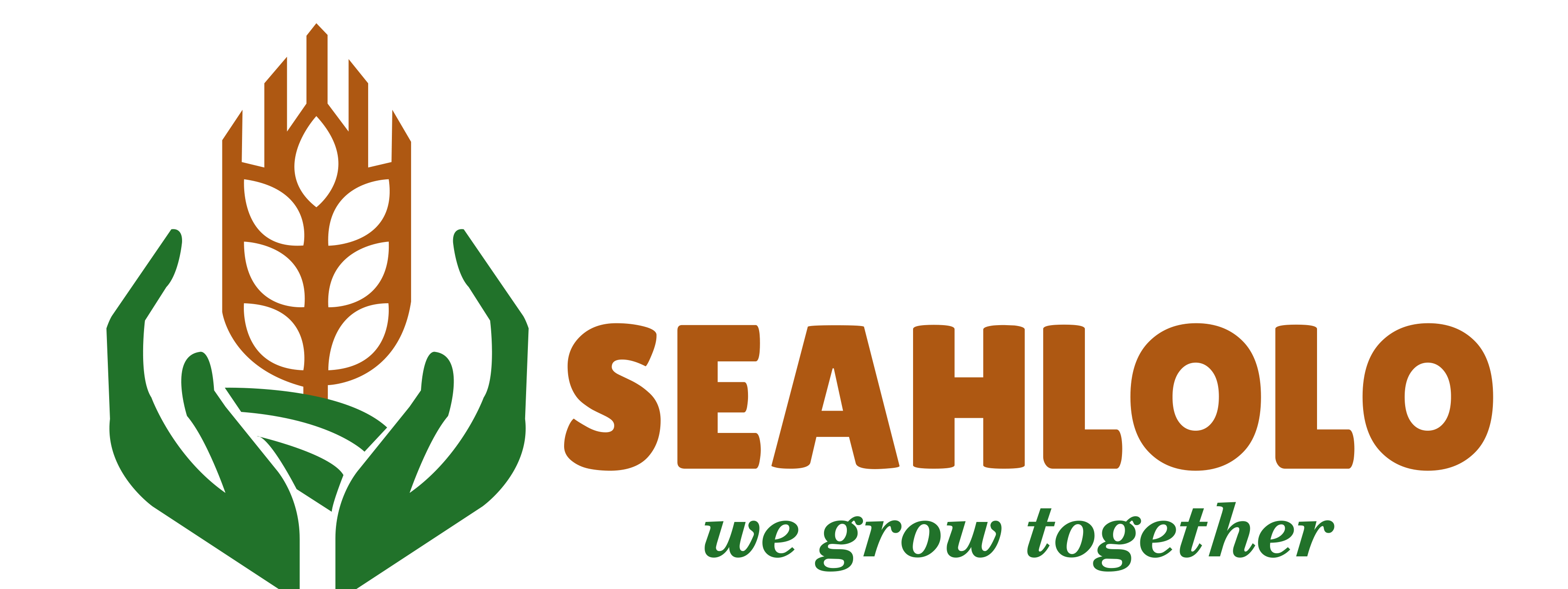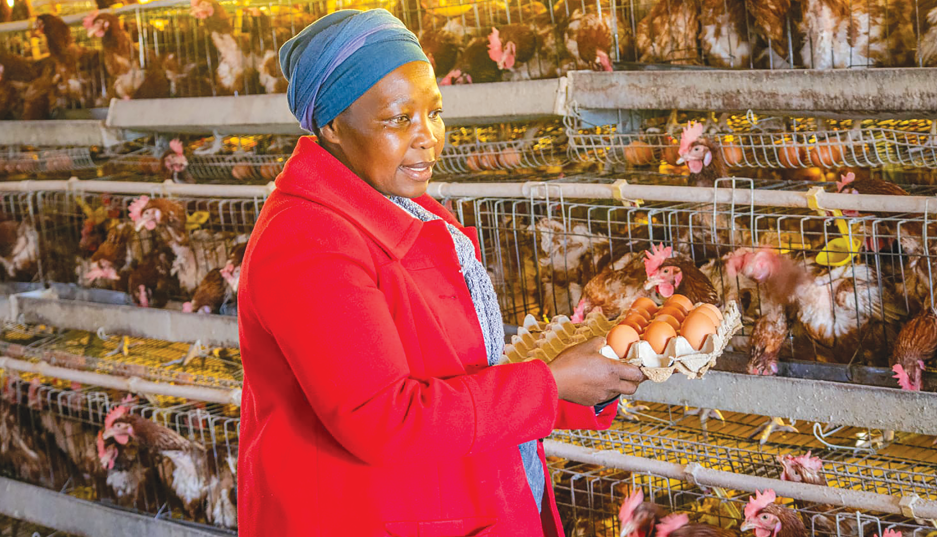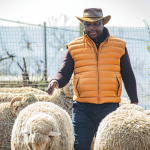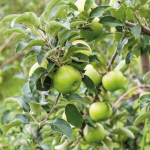By Staff Reporter
From a place of stagnation, the 39-year-old Serialong Dlamine has quietly built something remarkable with egg production through Dlamine Poultry.
The business, which came about from a place of frustration, is now a stable source of income for the Dlamine family and a learning hub for youth and women in Matholeng village of Mafeteng District.
Dlamine Poultry is leading the way in empowerment and setting the tone for self-sufficiency and economic empowerment.
The journey began in 2017, when financial issues shrouded Serialong, leaving her with a stretched yet simple question: What can I do to boost my household income? Her answer was rearing chickens.
“I remembered how in our childhood we always had chickens around. Eating meat or even eggs was never an exercise that needed much. Chickens were just there making an important part of our meals,” she recalls.
“And I also remember how local nurses mentioned how eggs are the most affordable source of protein. That was it. I saw a gap and I knew there was a demand in my area,” she says.
Serialong knew to succeed in this newly founded journey through Dlamine Poultry, her family’s support was her cornerstone.
“I sold the idea both to my child and husband, who were sceptical but went ahead and cheered on. We took a loan and bought our first 500 chicks. We didn’t employ anyone because egg farming doesn’t make much profit until the chickens mature, so it didn’t make sense to bring in workers yet. We ran the farm as a family.”
Serialong says things weren’t easy at the start of the business.
Her first shelter was a small shack, and many of her chickens died due to harsh weather conditions.
“It was a long, tedious expedition which took a toll on me. I nearly gave up,” she admits.
Her tenacity kept her going long enough until 2019, when she heard about the Smallholder Agriculture Development Project II (SADP II).
“I wasted no time. I went straight to the SADP II office and asked how to apply for the grant because I wanted to grow,” she says.
“What stood out for me was how they didn’t leave me to figure things out on my own. They guided me through the entire application process.”
Her successful application brought a turning point with SADP II, helping her build a brick poultry structure, strong enough to house up to 1,500 layer chickens and better withstand extreme weather conditions.
“Since moving into the brick structure, chicken deaths have dropped significantly.
“Out of a thousand, I have lost fewer than 90 chicks, and that’s a huge difference,” she says.
She adds that previously, during droughts and heat-waves, the farm experienced devastation, but with the structure built in support, no climate change effects are a threat.
Dlamine Poultry rears 1,000 layer chickens and employs one permanent and one temporary worker.
“I strongly believe the SADP II has helped me build a legacy and not just an egg production company.”
A Natural Approach to Poultry Health
Unlike many farmers, Dlamine Poultry have chosen to raise their chickens without pharmaceutical antibiotics; instead, she brews natural remedies using ingredients like chilli, turmeric, cinnamon, and apple cider vinegar for treatment of her chickens.
“I give them the herbal mix weekly because it boosts their immune system and prevents diseases, and this is part of the many things I learned at different SADP II workshops.
“Since October 2024, I have seen a real decline in infections like bronchitis and roundworms.”
These workshops, she says, have played a crucial role in improving her disease management and overall farm performance.
“The information is practical and adds to what we need as farmers to improve. We leave those workshops feeling equipped, and evidence is seen in our work,” she adds.
A Market-Driven Model That Works
With egg demand consistently high, Dlamine Poultry has no trouble moving her product. She supplies local supermarkets, schools through the school feeding programme, and individual vendors, mostly women, who buy in bulk and resell for a profit.
“Each week has its own customer. Some buy 20 trays, others 40, resell and make a good profit,” she explains, saying it’s heartwarming to know that her business supports other families too—whether it’s through employment or income from resale.
Dlamine Poultry keeps a schedule for her clients and proudly shares that her eggs never stay packed for long.
“There is always someone waiting for eggs. The demand never goes away.”
Championing Women and Youth
Egg farming, she says, is a space where women are already active, but she believes there’s room for many more, especially youth.
“Unemployment hits women and young people the hardest, and egg production is a business that can uplift them when introduced properly. Eggs are part of our daily meals; they are affordable, nutritious, and always in demand.”
Her words are backed by action with a mentorship programme that she is running called Dlamini mentorship for aspiring poultry farmers.
“I believe that when you are lifted, you must lift others. That is the only way we can grow as a community. I offer guidance on lighting management for chicks, record keeping, and managing chicken health, among other things, under the mentorship,” she says.
Looking Ahead
With a vision to expand, she hopes to add two more chicken houses on her farm, saying the success of the SADP II grant has opened her eyes.
“I have seen what is possible with a thousand chickens. With 1,500, and maybe more, the profits will be better, and I can employ more people.”
Serialong notes that while the business’s foundation was a financial response, the journey has evolved to being purpose-driven.
“Farming has taught me patience, resilience, and the power of support. SADP II didn’t just build me a shelter; they helped me build a future which I wish to share. Lesotho can be self-sufficient if there are two or three more Dlamine Poultry farms,” she says.
And for the many women and youth she has inspired, her journey is a powerful reminder that success doesn’t always start with abundance. Sometimes, it starts with 500 chicks, a little hope, and a community that shows up for each other.
Sponsored by





